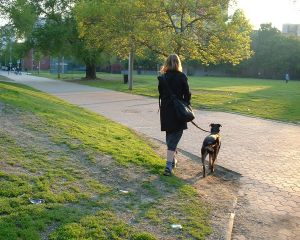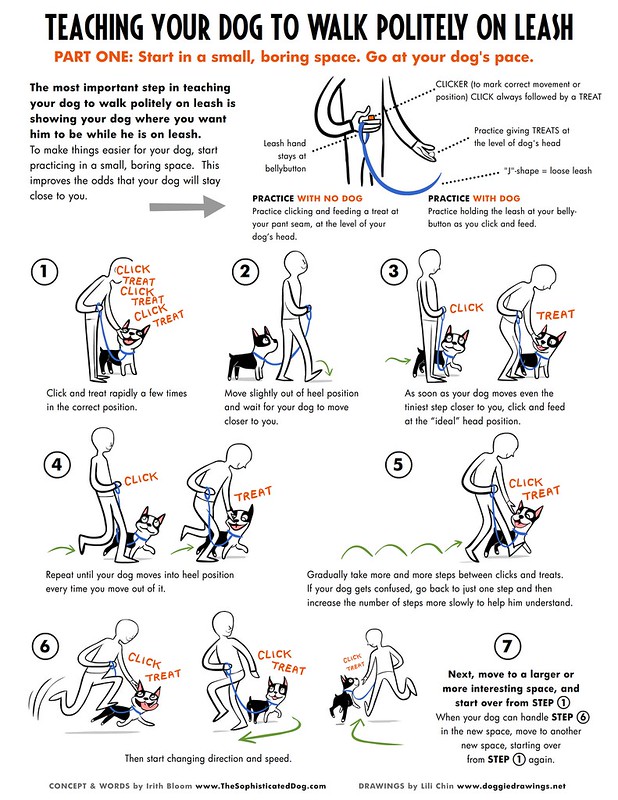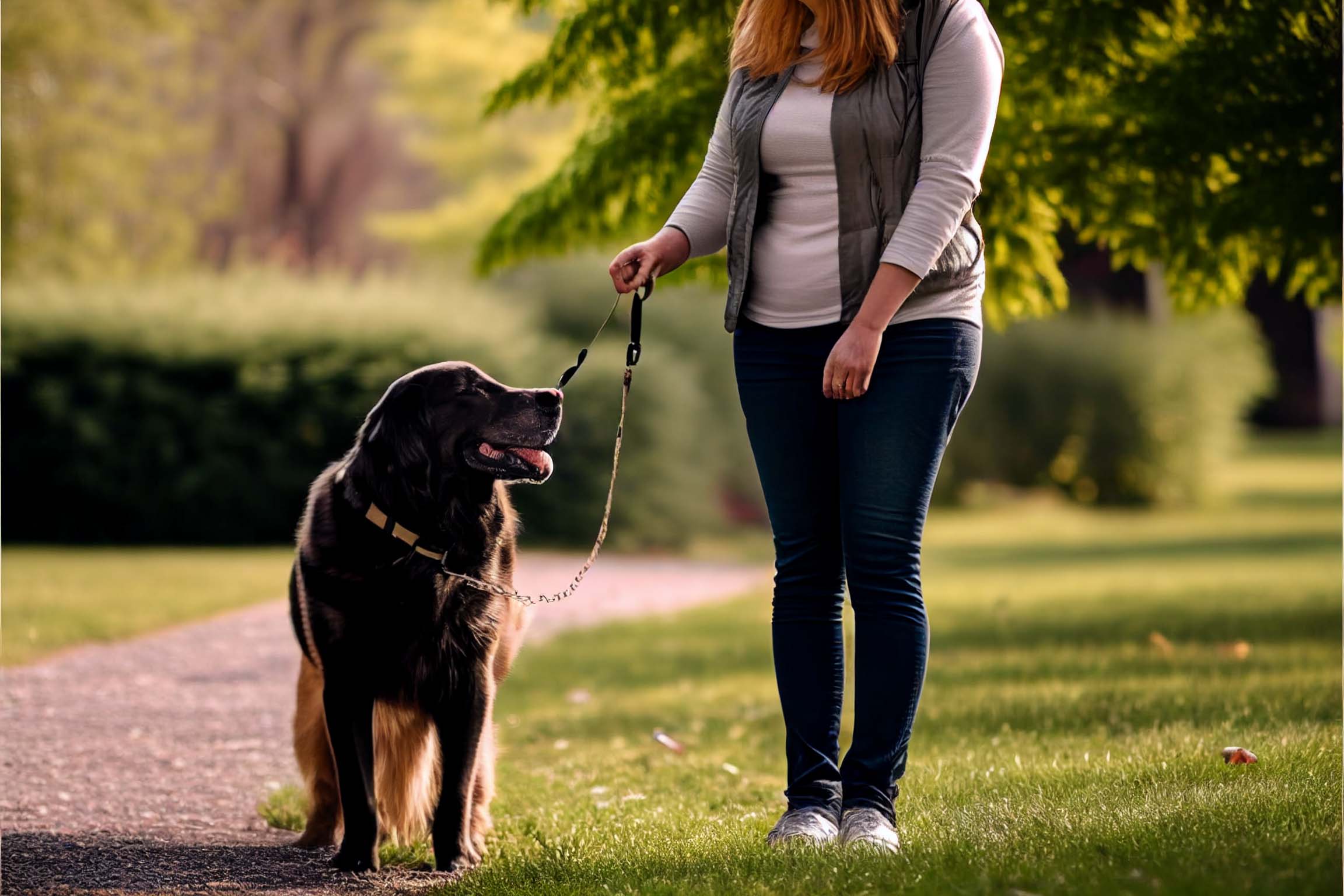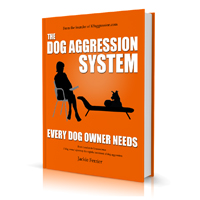
We would all like to walk our dogs without having them pull us. But how many of us realize that it’s not all that natural for some dogs to walk as slowly as we do? And beside us no less? How many off leash dogs have you seen go for a walk side by side a few feet apart? Exactly! Not too many, or at least not for too long. Dogs need to be trained how to do this.
Unfortunately, a lot of people don’t know how to train a dog to walk on leash and this leads to frustration. Luckily, there is information available!
How to Train a Dog to Walk on a Leash
The following info-graphic by Lili Chin and video by dog trainer Emily Larlham both use click training to teach you how to train a dog to walk on a leash. And finally at the bottom are a few tips to help you along. (If you are unaware of click training, clicker training can be a really efficient and fun away to train dogs. As a simple explanation – it works a little like playing the child’s game of “Hot or Cold”. For more information, check out introduction to clicker training.)

Dog trainer, Emily Larlham, also created this helpful video on How to Train Your Dog Not to Pull – Loose Leash Walking.
If your dog has already learned to pull on a leash, your dog may think this is what walking with you is like. In fact, pulling on the leash may be the only way your dog knows how to get to wherever he or she wants to go! A few helpful tips may help you with training.
Tips to help you teach your dog how to walk on leash
- Make sure your dog has had plenty of time to run around. A tired dog is less likely to pull.
- Make sure your dog has had plenty of time to just be a dog. Dogs like to sniff and explore. Give them every opportunity to do something that is interesting to them before you start training them.
- When ever you can, allow your dog to explore the space he or she will be working in before starting the training. It’s not always possible, but a long leash might allow you to do this in some areas.
- Work on a longer leash to begin with (provided it is safe to do so). This will decrease chances of pulling.
- Work up to challenges and lower your expectations as you increase them. Don’t expect your dog to be able to walk down the street with a loose leash if they have only ever practiced in the livingroom.
- Remember that walking is not a preferred gait for all dogs. Some dog might want to walk faster then you usually do. Stepping up the pace may help some dogs. Alternatively, moving too fast may get some dogs too excited. Judge the best speed based on how your dog responds.
You might also be interested in these articles:
5 reasons why leash training is so important (especially for aggressive dogs)


